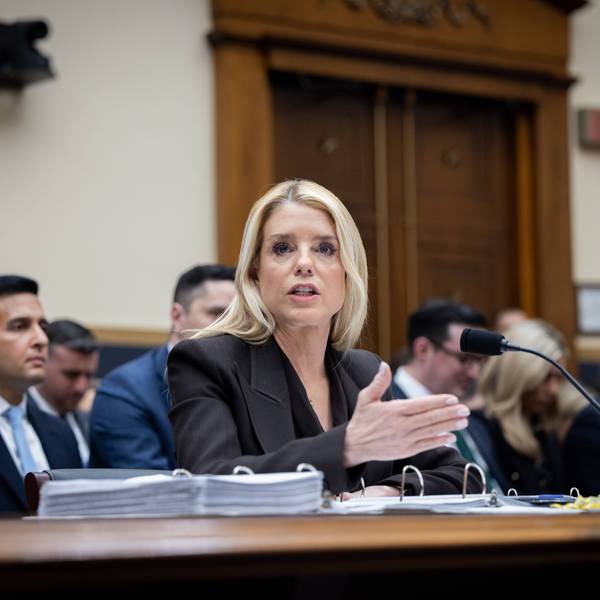A consumer advocacy organization lamented the "travesty of justice" on Monday after HSBC said that it no longer had to worry about the possibility of criminal charges for laundering hundreds of millions of dollars in drug cartel money and violating other federal laws since the bank's deferred prosecution agreement (DPA) with the Department of Justice expired.
"HSBC lived up to all of its commitments, and, therefore, under the DPA, the Department of Justice will file a motion with the US District Court for the Eastern District of New York seeking the dismissal of the charges deferred by the agreement," the banking giant said in a statement released Monday.
That agreement, reached in 2012, meant HSBC paid a then-record $1.9 billion fine, submitted to an outside monitor, and committed to reforms. The agreement also pushed off any criminal prosecutions--making it a deal one observer said at the time amounted to "the world's largest wrist slap."
In a statement responding to the DOJ's latest reported action, Robert Weissman, president of Public Citizen, echoed that sentiment. "A megabank was able to evade pleading guilty to a raft of criminal violations--kind consideration for lawbreakers that almost certainly would not have been afforded to a small bank, let alone a street dealer," he said. And with the threat of prosecution now over, "the Trump Justice Department is doubling down on this manifest injustice," Weissman added, calling the DPA and its reported dismissal "perks of corporate giantism."
The HSBC statement boasted that "the Department of Justice has recognized HSBC's progress in strengthening its anti-money laundering and sanctions compliance capabilities over the past five years." But Weissman countered that, saying that in the five years since the DPA was inked, "HSBC has been: caught up in a foreign exchange fraud case; subject to a compliance report reportedly indicating the bank resisted reforms at least in the first year of the DPA; alleged to have engaged in recent or ongoing money-laundering abuses. This is hardly the profile of a 'reformed' business."
"The Justice Department's let-them-off-easy approach not only is a moral outrage, it is an invitation for Wall Street and megacorporations to thumb their noses at the law," he continued. "Why not, when the consequences of being caught for systematic, large-scale, profitable and consequential violations are so trivial?"
(Since the agreement stipulated the bank had to partially defer bonus compensation for top executives, the end of the DPA may also mean a giant check waiting for the execs.)
The New York Times reports that filings related to dismissing the charges lingering over HSBC had not been made by late morning in New York.
The development follows an analysis by the Wall Street Journal in August that found the nation's largest financial institutions are faring well under Trump, with fines by Wall Street regulatory agencies in the first half of 2017 down almost two-thirds compared with the first half of 2016.




